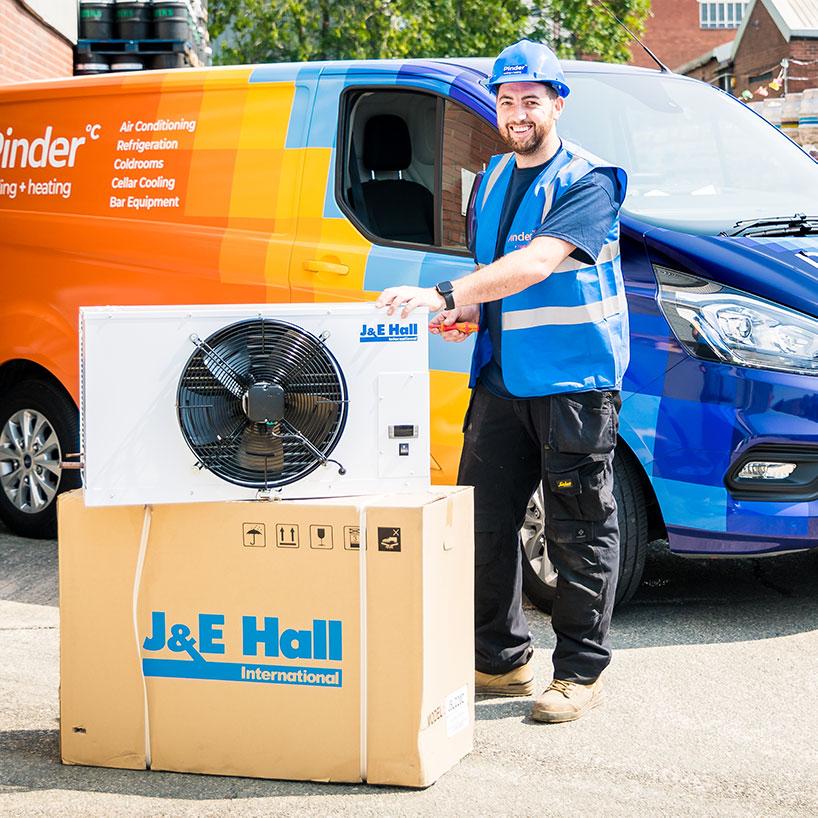Do you check your temperature settings at least once a day?
The FSA recommends that you both check and record your fridge and freezer temperatures at least once per day. Of course, dependent on the risk levels, you may want to do this more often. Some examples of situations where this applies is if you’re a restaurant serving food between say 10am and 9pm, and lots of people regularly open and close the fridge.
Do you know the correct temperature your refrigeration systems should be?
Temperatures differ depending on whether it’s food or drink. The guidelines below will help you determine the right temperatures if you’re not fully sure.
- All frozen food products must be kept between -18°/-22°C
- The preferred storage temperature for fresh fish is -1°C/+1°C
- The preferred temperature for the storage of fresh meat is -2°C/+2°C
- Dairy Products including milk, cheeses and other dairy products should be kept between +1°C/+4°C
- Pre-Chilled Food / Beer & Bottled Drinks should be stored at between +1°C/+9°C
Do you check any pumps and drains at least once a week?
Bigger commercial refrigeration units and freezers are more prone to creating slime and sludge, which tends to form inside of tubing and the drains. Should this go unnoticed and the drains overflow with sludge and moisture, the smell in the vicinity won’t be pleasant – and you’ll likely experience issues with your unit. Make sure you regularly check the drains and pumps for signs of sludge forming.
Do you have your grills and units cleaned on a regular basis?
As we’ve mentioned throughout, regular cleaning of your equipment can extend the life cycle and also prevent unnecessary and costly breakdowns. One of the areas of the components of a commercial fridge in which we recommend is cleaned regularly is the grill which protects the coils. These grills can quickly become covered with grime, dust and other bacteria – not hygienic at all.
Are you aware of how many times a year, by law, your system should be leak tested?
Under F-Gas rules, systems require a mandatory leak test according to their size and whether a fixed leak detection system is in place.
| System Charge | Leak Test Frequency No fixed leak detection: |
Leak Test Frequency With fixed leak detection: |
|---|---|---|
| 5 to 50 tonnes CO2 equiv. | Once per year | Once every two years |
| 50 to 500 tonnes CO2 equiv. | Twice per year | Once per year |
| Over 500 tonnes CO2 equiv. | N/A | Twice per year |
Do you know where the condenser coils are located?
The condenser coils can be in one of two places: either at the top bottom or back of the fridge. This will however depend on what year it was made and by whom. Generally, older refrigerators have the coils located on the back.
Do you have your condenser coils cleaned and checked regularly?
We always advise that those with commercial refrigeration units should clean their coils at least every 30 days, but more if they are regularly used or placed in an environment where dirt circulates easily. Regularly cleaning the coils will benefit you in the long run, reducing the risk significantly of a costly breakdown.
Do you have a process in place to check safety controls?
Whilst thorough safety checks should always be carried out by a professional, we recommend you develop a process to visually check your safety controls. This should include looking out for any loose switches or controls, any water or burning, and any tripping of the system at the circuit breakers. If you spot a problem, do not attempt to fix it yourself. Instead, call a professional.
Do you have your equipment calibrated?
If your commercial refrigerator/cool is used to store food items then it’s highly advisable to have your thermometer calibrated quarterly, and especially before any type of inspection by standards agencies etc.
Are you aware of the rules and regulations surrounding the inspection and servicing of your equipment?
At the very least, you should have your equipment serviced twice each year, ensuring that the following labour operations are carried out where applicable:
- Check for leaks (refrigerant)
- Clean condenser(s) coil(s) and blow out with nitrogen
- Clean coil(s) on indoor unit(s)
- Check pumps and drains, and if necessary clean.
- Clean down units/grilles
- Examine safety controls
- Inspect electrical connections
- Check temperature settings
Do you switch off your systems for a long period of time and not check them when switching back on?
If for any reason you’ve had to leave your commercial fridge off for a long period of time, we’d always recommend giving it a once over before you switch it back on. Perform a clean, check the plugs and wires, and ensure the temperature is what it should be. If you’re in any doubt, please contact a professional engineer.

Download your commercial refigeration health check pdf here
If you have any questions, you can call 01274 962 430 for further information.